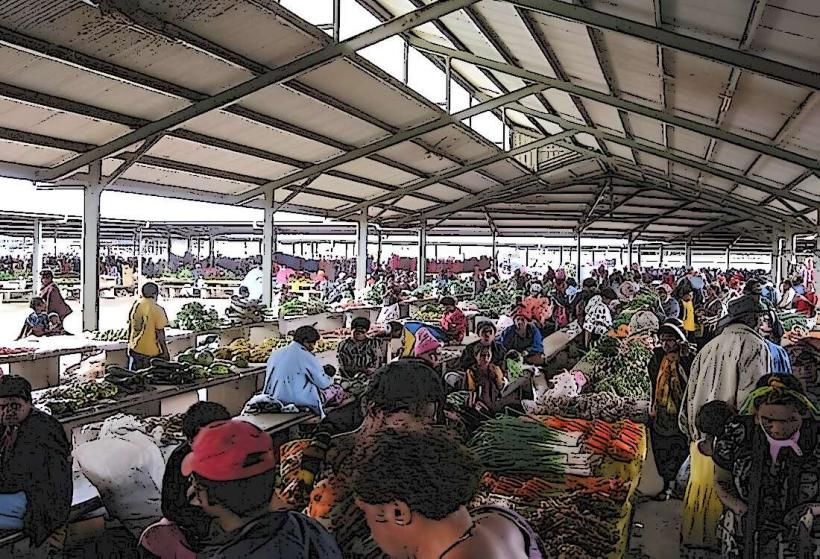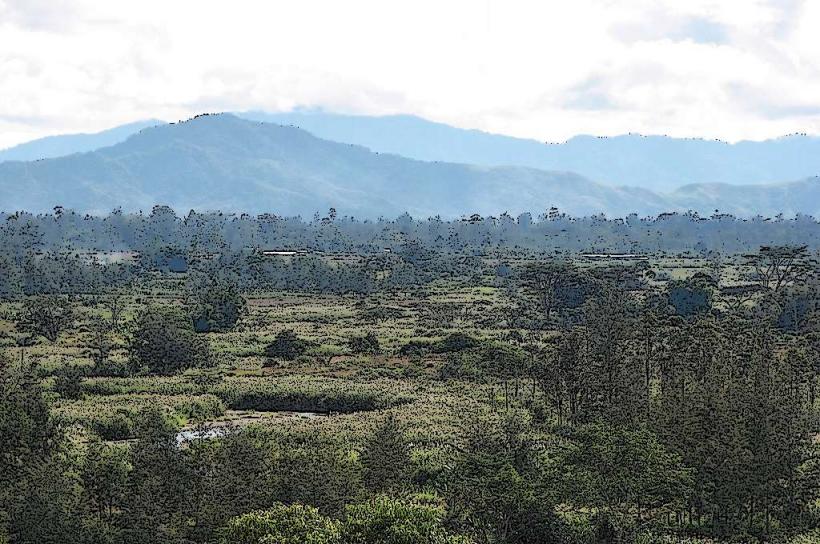Information
Landmark: Pagu Tea EstateCity: Mount Hagen
Country: Papua New Guinea
Continent: Australia
Pagu Tea Estate, Mount Hagen, Papua New Guinea, Australia
The Pagu Tea Estate is a prominent tea plantation located in the Eastern Highlands Province of Papua New Guinea. The estate plays a significant role in the country’s tea industry, which is one of the key agricultural sectors, contributing to both local livelihoods and national exports. Tea cultivation in Papua New Guinea has been growing steadily over the years, and the Pagu Tea Estate is one of the key players in this industry, known for producing high-quality tea that is exported internationally.
Key Features of Pagu Tea Estate:
Location and Geography: The Pagu Tea Estate is situated in the highlands of Papua New Guinea, where the elevation and climate are ideal for tea cultivation. The estate lies at an altitude of about 1,200 to 1,800 meters (3,937 to 5,906 feet) above sea level, which provides the cool temperatures and regular rainfall required for growing tea. The surrounding environment is lush and fertile, with the estate benefiting from the rich volcanic soils typical of the region.
History and Establishment: The Pagu Tea Estate was established in the 1960s by the O'Malley family, who were instrumental in introducing large-scale tea cultivation to Papua New Guinea. Over time, the estate has expanded and developed, becoming one of the major tea producers in the country. The estate is part of a broader effort to establish tea as a cash crop in the region, providing an alternative to traditional subsistence farming and contributing to local economic development.
Tea Cultivation: Pagu Tea Estate specializes in the production of high-quality black tea and green tea, both of which are grown on the estate's rolling hills. The estate uses both traditional and modern agricultural practices to maintain its tea production. Tea plants are grown in neat rows on the estate's sloped terrain, which helps with drainage and allows the plants to thrive in the tropical climate. The estate's workers, many of whom are local to the area, tend to the crops by hand, ensuring the plants receive the care needed to produce the best quality leaves.
Processing and Production: The tea leaves harvested at Pagu Tea Estate are processed on-site at a dedicated tea factory. The estate employs both mechanical processing and traditional methods to ensure the best flavor and quality of the tea. The estate processes its leaves into various grades of black and green tea, which are then packaged for both local consumption and international export. The estate is known for producing premium teas with distinct flavor profiles, and the products are highly regarded in the market.
Sustainability and Eco-Friendly Practices: The Pagu Tea Estate places a strong emphasis on sustainability and environmental responsibility. The estate is committed to using environmentally friendly farming methods, such as reducing the use of chemical fertilizers and pesticides. It also implements soil conservation practices to prevent erosion and ensure the long-term health of the land. The estate has made efforts to minimize its carbon footprint and promote sustainable agricultural practices that can be passed down to future generations.
Economic Importance: The Pagu Tea Estate is an important source of income for the local community. Many people in the region are employed in various stages of tea production, from planting and harvesting to processing and packaging. The estate contributes significantly to the local economy, both through direct employment and by supporting other local businesses, such as suppliers of agricultural inputs. Additionally, the estate’s export of tea helps to diversify the country’s agricultural exports, with Papua New Guinea’s tea being recognized for its unique flavors in international markets.
Tourism and Visitor Experience: While the Pagu Tea Estate is primarily a working plantation, it also attracts visitors who are interested in learning about tea production and experiencing the beauty of the surrounding highlands. Some tourists may have the opportunity to tour the estate, observe the tea cultivation and harvesting process, and visit the tea factory where the leaves are processed. Visitors can also purchase fresh tea from the estate, often directly from the plantation, providing them with a more authentic tea-tasting experience.
Tea Varieties and Products: The estate produces a range of tea products, with an emphasis on black tea, which is the most widely consumed type in Papua New Guinea and internationally. The estate also grows green tea and herbal teas that appeal to different tastes. Pagu Tea Estate’s products are often packaged in loose leaf form, as well as in tea bags, and are sold both locally and abroad. The estate has built a reputation for producing aromatic, flavorful, and refreshing teas, and it is well regarded within the tea industry for its commitment to quality.
Community and Social Impact: Beyond its role as an agricultural business, the Pagu Tea Estate plays an important part in the social fabric of the local community. The estate has provided employment opportunities for local workers and has contributed to the region’s overall development by improving infrastructure, including road networks and access to basic services like healthcare and education. The estate also supports community development programs, offering training and educational opportunities for local people to improve their skills and quality of life.
Challenges and Future Prospects: Like many agricultural enterprises, the Pagu Tea Estate faces challenges related to climate change, market fluctuations, and maintaining sustainable growth. The estate is working to address these challenges by adapting to changing weather patterns, improving the efficiency of its operations, and exploring new markets for its products. The ongoing development of the tea industry in Papua New Guinea suggests a growing demand for locally produced tea, and the Pagu Tea Estate is well-positioned to contribute to this expanding market.
Conclusion:
The Pagu Tea Estate is an important tea-producing region in Papua New Guinea, contributing to the country’s agricultural diversity and economic development. The estate’s focus on quality tea production, sustainability, and community welfare has helped it establish a strong reputation in both local and international markets. With its scenic highland location, commitment to sustainable practices, and rich cultural heritage, the Pagu Tea Estate remains a key player in the growing tea industry of Papua New Guinea.






